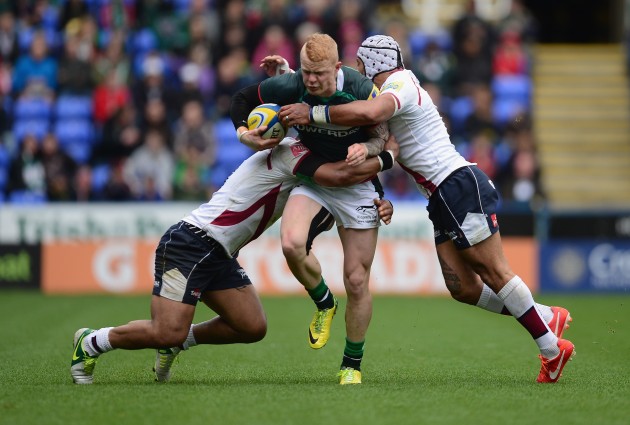Bob Casey talks us through the plans for London Irish as they enter a new era complete with new owners and training facililties...
WHEN London Irish said farewell to their training ground, the Avenue, a few weeks ago, it signalled the transition into a new era. It was a nostalgic day for some – London Irish lay their roots in the south-west London suburb of Sunbury in 1931 – but a move into modern facilities is a necessity that has been recognised by stalwarts and new fans alike, and will be crucial to the success of the club in years to come.
The Guard of Honour are all lined up… Let's welcome on the teams pic.twitter.com/XYmaddbfJ3
— London Irish (@LiRFC) May 17, 2014
London Irish’s new owners, a consortium of businessmen led by Mick Crossan, have expressed the desire to develop the side both on and off the pitch, and while they are keen to see their players return to the top of the Premiership, building links with the local community is also central to their plans. The new £12m training site, which will be used by the elite side and community members alike, is situated on the old Hazelwood golf course less than a mile away from the Avenue. It’s 63 acres in size and, when completed later this summer, will feature five full size pitches, including one with an artificial 4G surface, and a gym. I was given a sneak peak of the new site when I went to speak to former captain Bob Casey. Here he reveals some of the plans…
Rugby World: What have the new owners done so far?
Bob Casey: They came in just before Christmas and carried out a review of the whole rugby department. The review was done independently, but they met with senior players to identify the strengths and weaknesses of the club. Our performances and league standing have suffered in the last few years due to a lack of investment and resources, both on and off the field. The new owners want London Irish to work as a business first – that has to be sustainable before you can push for results.
RW: What off-field changes will be made?
BC: Off the field, we want to have the best medical and strength and conditioning departments we can possibly have. We really want to look after our players off the field so they feel confident in playing for us. We’re also going to strengthen our links with Ireland. We have Irish roots, and we’d like to be able to attract more Irish players.
We want to create an environment that players want to be a part of, and will make them want to stay at the club. That means looking after them medically, but also maintaining our ethos as a family club. We’ve got several different nationalities of players here, and we want this to be their home away from home.
RW: What about on-field changes?
BC: We want to invest in our academy. This is the foundation of the club, and it’s important for us to be developing new talent. Declan Danaher is going to be coaching now he’s retired, and we’re excited to be welcoming back former players Nick Kennedy (academy director) and Paul Hodgson (academy backs coach) who will be working with him. If we lay the foundations correctly then it will be a massive contributing factor to our future success.
In the last two seasons we’ve won just under 30% of our Premiership games. This is a long-term project and our owners are committed to that, but the structure needs some time to settle down before we can expect our senior results to start improving. We want to add to our coaching team and back room staff because they’ve been under-resourced in the last few years. We’ve also been spending well over £1m less than the salary cap allows in recent years, and we’ll be able to rectify that to an extent now. We’re not the next Saracens, though, and we won’t have the funds to jet off around the world with the whole squad once a season!
RW: Tell us a bit about the players who you’ve signed…
BC: We wanted to invest in our pack, and props Geoff Cross and Tom Court are both great players and lads too. Sean Cox and Dan Leo (both second rows) are tough physically, and back rowers Luke Narraway and Tom Guest offer a lot of experience.
We’ve also signed Conor Gilsenan, another back row, from the Leinster academy, and I don’t see why we can’t develop a better relationship with Ireland in terms of developing their players. The new tax incentive means that players no longer have to retire in Ireland to qualify for tax relief, so if players want to retire abroad then there’s no reason they can’t do that too.
Watch highlights from London Irish’s 22-20 victory over Sale below








